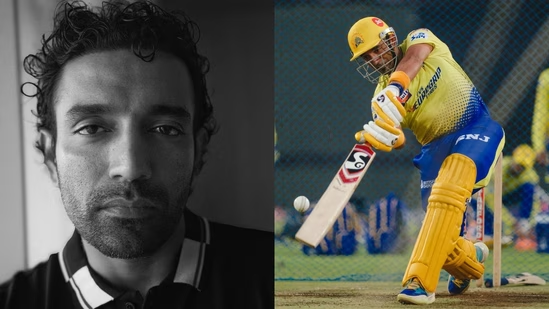22 august 2024 : Earlier this month, English cricketer Graham Thorpe tragically took his own life at the age of 55. His widow, Amanda, disclosed that his death was attributed to a prolonged battle with “major depression and anxiety.” The cricket community was profoundly affected by this news, marking yet another instance of a sports icon succumbing to the challenges of mental health.
In contrast, Robin Uthappa remains with us to share his experiences. The struggles faced by Graham Thorpe served as a catalyst for the former Indian cricketer to speak out. In the second episode of his series, True Learnings, Robin candidly discussed his own battle with depression. Despite enjoying a successful career, he recounted reaching a point of despair so deep that he found it physically impossible to face his reflection. “In 2011, I felt such shame about the person I had become that I could not bear to look at myself in the mirror. I spent the entirety of that year avoiding any situation where I might see my reflection. I vividly remember the sense of defeat and the burden my existence had become,” he expressed on his YouTube channel.
While Robin has managed to confront and overcome his challenges, the same cannot be said for several other sports legends. The names of Aubrey Faulkner, Jack Iverson, David Bairstow, VB Chandrasekhar, and David Johnson barely scratch the surface of this issue. Although it may seem practical to attribute these tragedies to the pressures of professional sports, a study published in the British Journal of Sports Medicine revealed that the suicide rate among college athletes has doubled from 2002 to 2022.
The issue of mental health extends beyond the realm of cricket. Michael Phelps, a 28-time Olympic gold medalist and renowned swimmer, openly expressed his desire to end his life following his second drunk driving incident in 2014, as he grappled with the pain he was inflicting on himself and those around him. Fortunately, he sought therapy, which he now advocates for in addressing his battles with depression and anxiety.
In 2021, during the Tokyo Olympics, Simone Biles, an 11-time Olympic medalist, made the decision to withdraw from the gymnastics team finals, citing mental health concerns. She reflected on her usual ability to overcome her nerves, but this occasion felt significantly different, prompting her to step back while her team secured a silver medal. Currently, Simone attends therapy sessions at least once a week for nearly two hours to address her past traumas.
Naomi Osaka, a two-time Australian Open champion, has been candid about the factors contributing to her mental health challenges, a sentiment likely shared by many athletes. In a now-deleted Instagram post, she remarked, “I often feel that there is a lack of consideration for athletes’ mental health, especially during press conferences. We frequently face repetitive questions or inquiries that instill doubt, and I refuse to expose myself to those who question my abilities.”
Michael, Simone, and Naomi are not isolated in their experiences. Other prominent athletes, including half-pipe star Chloe Kim, figure skating champion Gracie Gold, basketball player Kevin Love, NBA player Tacko Fall, gymnast Laurie Hernandez, and Olympic gold medalist Noah Lyles, have also publicly shared their ongoing struggles with mental health.
Examining the Issue: How Does the Mental Health Crisis Manifest in the Athletic Community?
The fleeting nature of winning an international accolade and the subsequent celebratory moments starkly contrasts with the relentless daily demands that athletes endure. The anticipation of their next significant performance, combined with the constant scrutiny from the public—who often idolize them while simultaneously waiting for their downfall—creates a challenging mental environment for these individuals. Dr. Arushi Dewan, a clinical psychologist and the founder of Coping Keys, highlights the significant challenges faced by sports champions. “Athletes operate under tremendous pressure, and their heightened sense of obligation to succeed for their country can profoundly affect their emotional well-being,” she states.
Furthermore, Dr. Dewan draws attention to the detrimental link between an athlete’s performance and their self-esteem, which perpetuates a harmful cycle. “Many athletes and celebrities tie their self-worth to their achievements, leading to a pattern of self-criticism and guilt when they fail to meet their performance expectations. This ultimately fosters dissatisfaction and can culminate in depressive feelings,” she observes.
So, what is the remedy? “One might think that postponing the decision to seek help will eventually lead to improvement, but this is a misconception—just as cold water remains cold, delaying mental health support will not alleviate depressive symptoms. It is essential to take the initiative to pursue therapy to effectively manage these challenges,” Dr. Dewan concluded.

